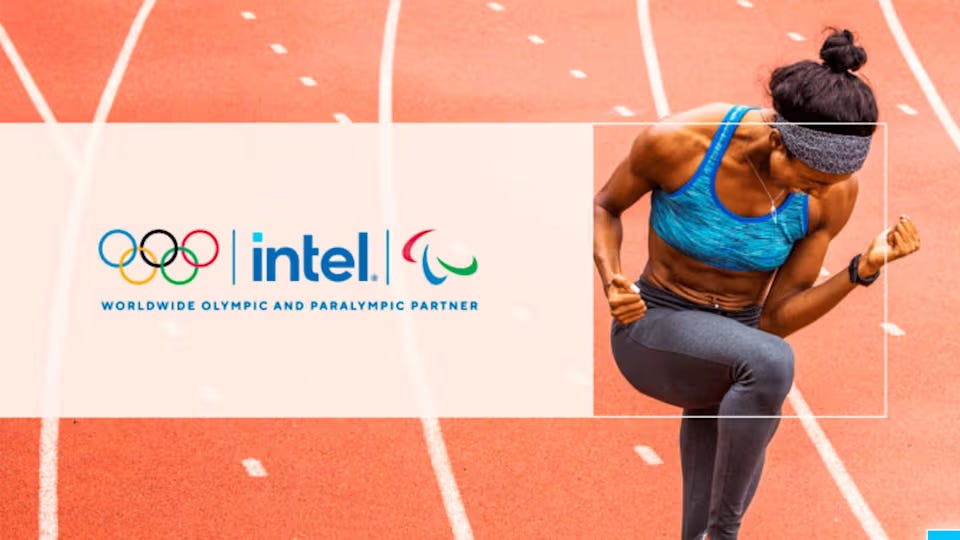Intel’s Digital Transformation of The Olympics: AI Meets Sports
Intel introduced an innovative, imaginative approach to the Olympic experience, implementing 5G technology, artificial intelligence, drones, and virtual reality.
Highlights
Expect groundbreaking technology like 5G, AI, and VR to elevate the Olympic experience thanks to Intel's INTC 0.00%↑ innovations.
Intel's partnership promises flawless HD broadcasting and advanced event planning tools like OnePlan's 3D mapping.
The $400 million deal with Intel is ending soon, leaving the future of their Olympic involvement uncertain.
Technology is one of many notions that come to mind when discussing sports. In fact, many argue that the two aren't related at all. However, even the most traditional minds would have to agree that a show-stopping event such as the Olympic Games lies on the foundation of state-of-the-art technology. This revolutionary technology brings the authentic Olympic experience to the homes of spectators on the edge of their seats around the globe.
Since the PyeongChang 2018 Olympic Winter Games, Intel has been a critical factor in the Olympic technological scheme. While it is uncertain whether the fruitful collaboration between the global software innovator and the Olympic Committee will continue, even if Paris marks the end of their journey, Intel will go out with a bang.
Intel's Olympic Road: The Power of Technology
Seven years ago, the world's leading fast-food chain decided to dissolve the Olympic partnership. After over four decades, faced with the increased cost of sponsorships and unsatisfactory TV ratings, McDonald's opted out - leaving a spot open.
It wasn't long before the Olympic universe welcomed the technology giant in all its glory. Intel introduced an innovative, imaginative approach to the Olympic experience, implementing 5G technology, artificial intelligence, drones, and virtual reality.
According to Sarah Vickers, the Director of Intel's Olympic Program Management, Intel is "excited to use new technologies to bring deeper levels of interaction to Olympic and Paralympic fans around the world, especially as Intel leverages AI, compute and connectivity to transform the broadcast landscape."
Furthermore, the company views the Games as an exclusive opportunity to unite the world "not only by a desire to watch the world's best, but by innovative technology solutions that enable new levels of connectivity, streamline and secure operations, increase sustainability and deliver data-rich experiences."
Private 5G Network
Intel's first step in revolutionizing the Paris 2024 coverage is introducing a private 5G network superior to traditional Wi-Fi. To achieve the best network coverage and offer unmatched security, Intel created a completely wireless system, significantly decreasing the setup time. The network is controlled by a compact and portable mobile radio base station that allows maximum coverage even in outdoor locations that once represented a challenge for organizers.
Partnered with Cisco CSCO 0.00%↑, Intel is shaping the future of live event broadcasting, providing minimal-latency HD video transmission even from remote locations. However, the revolution continues beyond the Games; other industries will also benefit from this networking innovation in the future.
Collaboration with SoReal
Keep reading with a 7-day free trial
Subscribe to 24Hour Journal to keep reading this post and get 7 days of free access to the full post archives.





